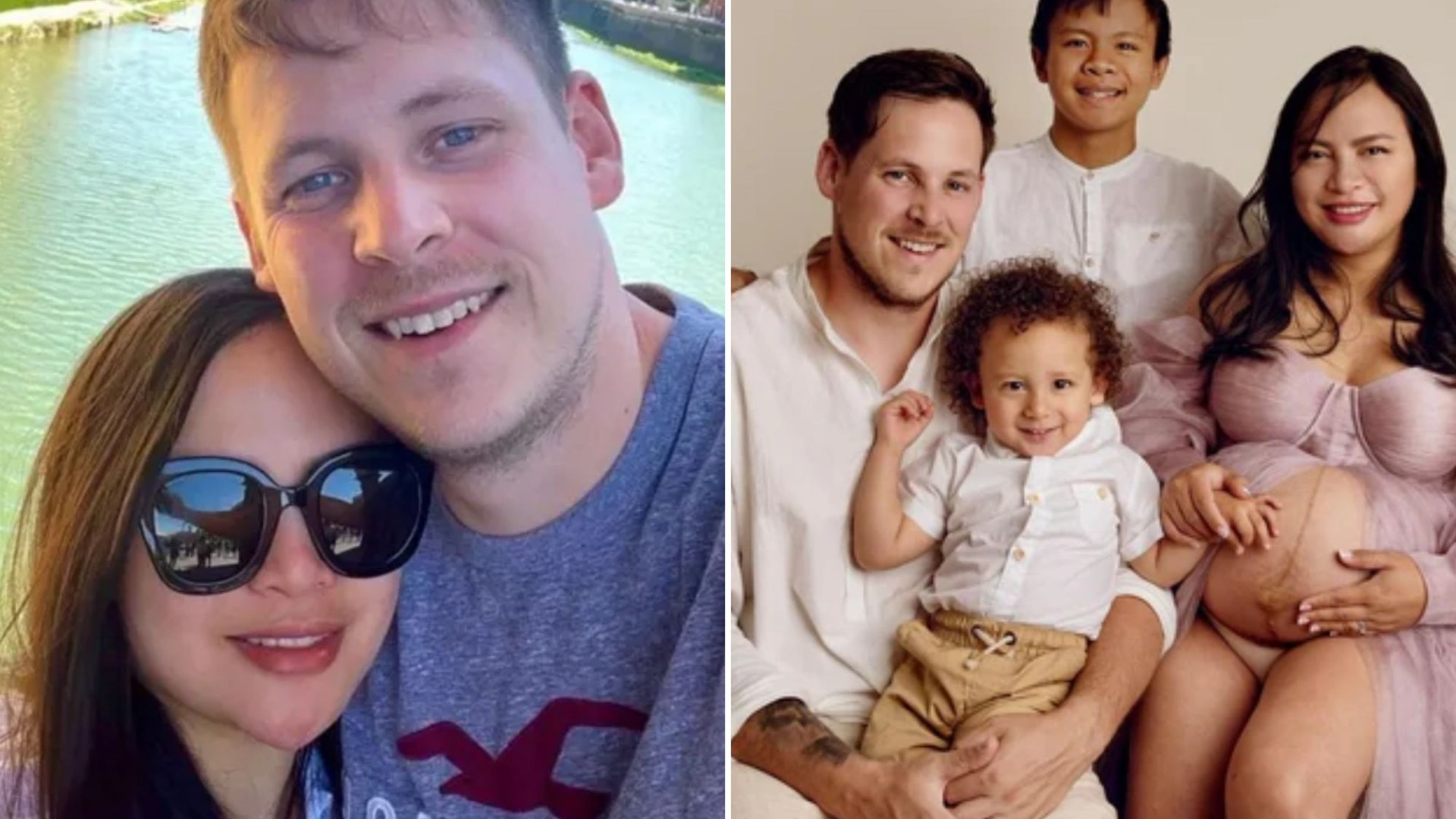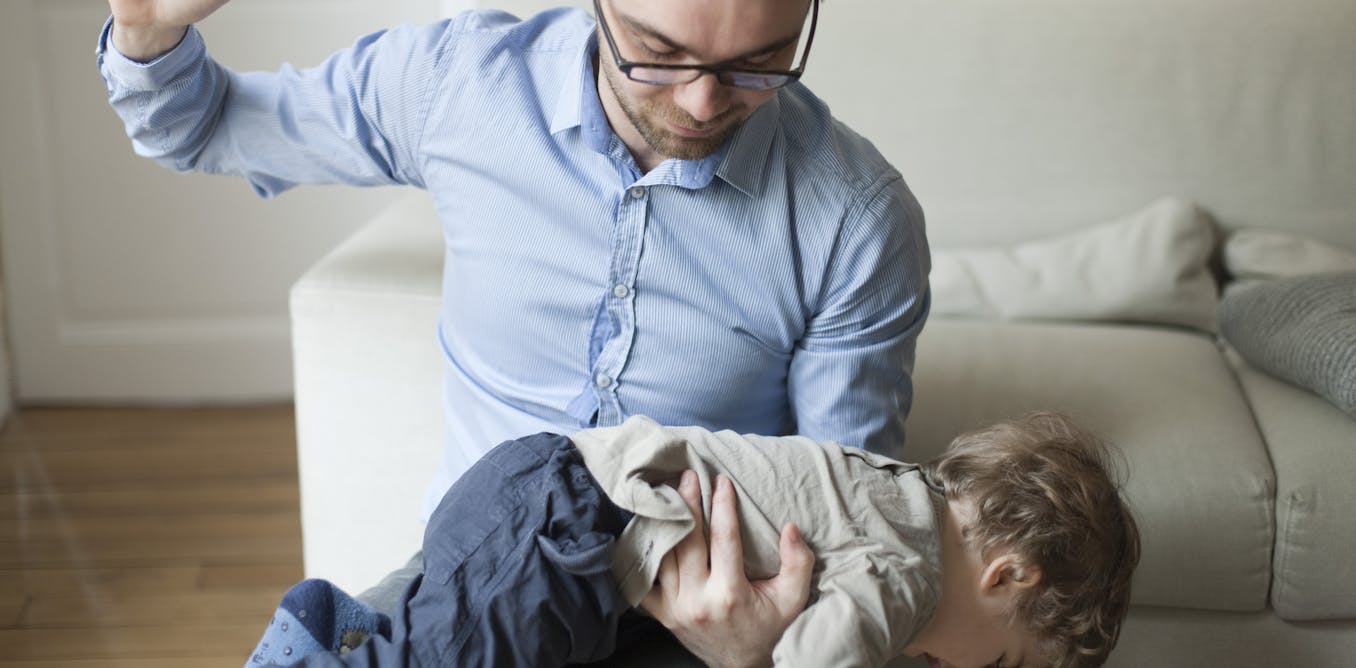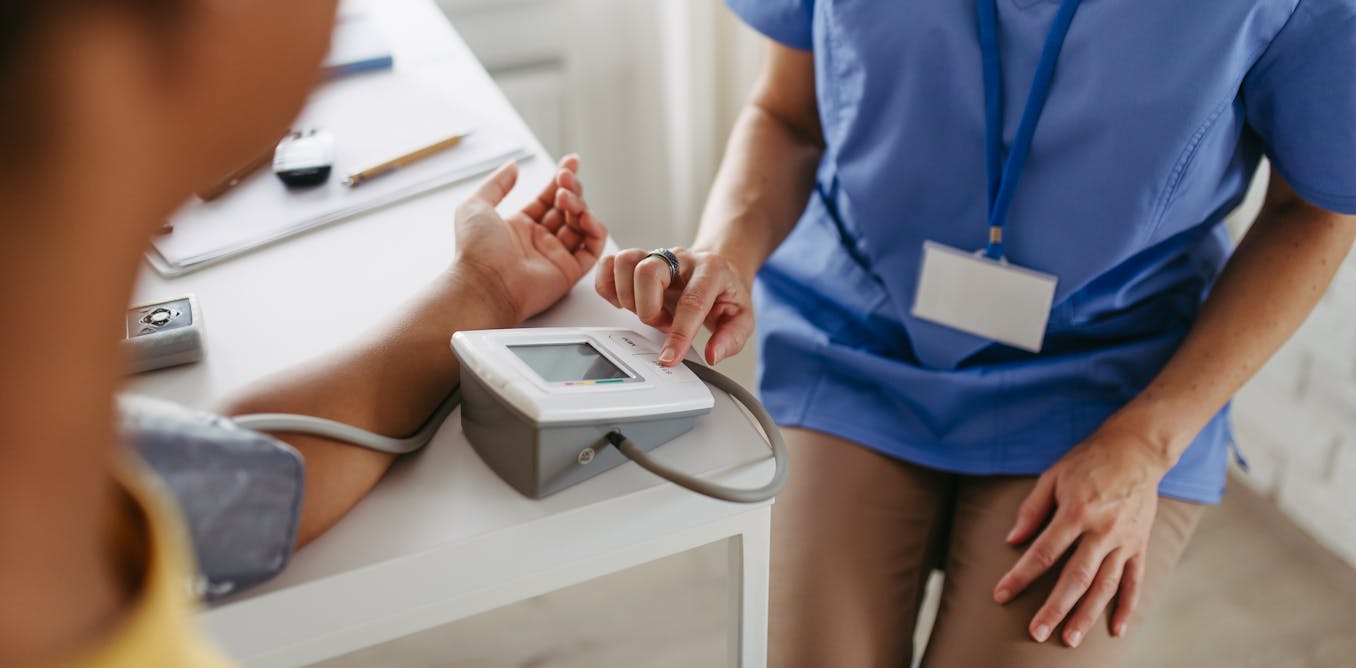A FOOTBALL-mad dad passed away just months after the birth of his first daughter, with doctors dismissing him as “sleep deprived parent with a newborn”.
Dad-of-three Sam Bravo-Hibberd, 34, from Peterborough, Cambridgeshire, began experiencing personality changes and suffered from headaches and confusion.
6

6

6

6
His symptoms became particularly pronounced in the weeks after his wife Mauricee gave birth to their third child, Alejandria.
Sam was at first told by doctors that he was suffering from migraines due to being sleep deprived as a new dad.
But just two months after welcoming his daughter into the world, the former satellite engineer and business consultant was diagnosed with an inoperable glioblastoma (GBM).
Given just weeks to live, Sam underwent surgery and radiotherapy to shrink the tumour, but his cancer proved particularly aggressive.
Read more on brain tumours
The dad passed away in February, leaving his wife and children heartbroken.
“There will forever be an excruciating void in me that will never be filled, only eased by our beautiful memories,” Mauricee told The Peterborough Telegraph.
“He will live in the deepest recesses of mine and the children’s hearts.”
A football tournament was help in his honour on June 23 – just days after what would have been his 35th birthday – to raise funds for Brain Tumour Research.
‘Like living with Jekyll and Hyde’
Sam’s began showing symptoms of his brain tumour over a year before he diagnosed.
“Something changed in him but I couldn’t pinpoint exactly what it was at the time,” Mauricee, a specialist practitioner in surgery, wrote in a blog post for Brain Tumour Research.
“We had a very happy marriage but suddenly that changed and I didn’t understand why.”
At first, Mauricee thought her pregnancy hormones were causing her to notice changes in her husband.
“It was like living with Jekyll and Hyde. Sam would tell me he loved me and then the very next day he’d do something that showed me otherwise.
“Or else he’d seem to forget everything we spoke about the day before or have a completely different understanding of the sequences of events in our daily lives.
“He even joked about joked about changes in his accent and laughter which, in hindsight, were all symptoms of the tumour silently growing in his head.
“Things got so bad that, in March 2023, whilst pregnant, I filed for divorce.”
The most common symptoms of a brain tumour

More than 12,000 Brits are diagnosed with a primary brain tumour every year — of which around half are cancerous — with 5,300 losing their lives.
The disease is the most deadly cancer in children and adults aged under 40, according to the Brain Tumour Charity.
Brain tumours reduce life expectancies by an average of 27 years, with just 12 per cent of adults surviving five years after diagnosis.
There are two main types, with non-cancerous benign tumours growing more slowly and being less likely to return after treatment.
Cancerous malignant brain tumours can either start in the brain or spread there from elsewhere in the body and are more likely to return.
Brain tumours can cause headaches, seizures, nausea, vomiting and memory problems, according to the NHS.
They can also lead to changes in personality weakness or paralysis on one side of the problem and problems with speech or vision.
The nine most common symptoms are:
- Headaches
- Seizures
- Feeling sick
- Being sick
- Memory problems
- Change in personality
- Weakness or paralysis on one side of the body
- Vision problems
- Speech problems
If you are suffering any of these symptoms, particularly a headache that feels different from the ones you normally get, you should visit your GP.
Source: NHS
Sam and Mauricee were able to salvage their marriage and he focused on supporting and caring for his wife and newborn daughter.
Just two weeks after Mauricee gave birth to Alejandria, Sam began suffering physical symptoms too.
“At first he got headaches lasting just a few minutes, but then these were accompanied by a metallic taste, which we now know to be seizures,” Mauricee wrote.
She took Sam to the GP after he collapsed to the floor while changing Alejandria’s nappy.
“Sam was told he was suffering from migraines, a result of sleep deprivation from having a newborn, and was prescribed migraine tablets.”
Unsatisfied, Mauricee continued pressing doctors to refer Sam for an MRI scan, which was eventually booked in for four weeks later.
A devastating diagnosis
Sam was admitted to hospital again during school summer holidays, and was sent for a CT scan after Mauricee pleaded with a nurse, insisting that something wasn’t right with her husband.
She recalled: “A few minutes later we were asked to move into a private room where the first line out of the doctor’s mouth was ‘I’m sorry I didn’t believe you at first but we listened to you and we sent him for a scan’.
“I was leaning more towards him having early onset dementia because I knew there was a history of it in his family.
“Sadly, the truth was much worse than I’d ever expected. We were eventually told that Sam had a very large brain tumour.”
Even after the doctor had discussed his scan, Sam struggled to comprehend him and thought they were at the hospital because Maurice was poorly.
Every day is hard without Sam especially as this was the first birthday without him
Mauricee Bravo-Hibberd
Sam was officially diagnosed with an aggressive glioblastoma.
By that time, the tumour was so big it was pushing to the right side of his brain, causing the new symptoms including difficulty finding words and reading, confusion, memory loss, motor weakness, and multiple seizures a day, Mauricee’s sister Melissa said in GoFundMe.
During his first appointment with a neurosurgeon in September 2023, the family was told the the tumour was inoperable – he was given 12 weeks and referred for palliative care.
However, after seeking a second opinion privately, Sam underwent an open biopsy, during which around 30 per cent of his tumour was debulked.
This bought the dad precious time with his children and he outlived doctors’ prognoses of 12 weeks.
But his biopsy showed he had glioblastoma multiforme, “the deadliest type of brain tumour with the worst prognosis”, Mauricee said.
It also revealed that the tumour was unmethylated, making it less likely to respond to chemotherapy and thus narrowing treatment options.
Sam’s tumour was so aggressive that it grew further, even in the spots it was debulked.
As he underwent radiotherapy, Mauricee desperately tried to raise funds for private treatment, including a clinical trial in Germany to try and prolong his life.
One of her efforts included organising a prize draw to win the couple’s beloved Tesla.
Sadly, the dad-of-three succumbed to his cancer before he could begin the experimental treatment, passing away in February this year.
A lasting legacy
As part of Sam’s legacy, Mauricee made a substantial donation to fund 100 days of next generation sequencing at the charity’s Research Centre of Excellence at Queen Mary University of London.
And she organised a charity kickabout in her football-mad husband’s name to raise funds to help find a cure for brain cancer, which took place at at Powerleague Peterborough.
Mauricee said: “Every day is hard without Sam especially as this was the first birthday without him.
“The support of our friends has been invaluable. I know he’d be chuffed we are all coming together again to remember him and fundraise for such an important cause.
“It’s heartbreaking that Sam is no longer here, but in his death, I want to create a legacy of helping to fund research into brain tumours; to give hope to future patients and their families affected by this horrible disease.”

6

6




